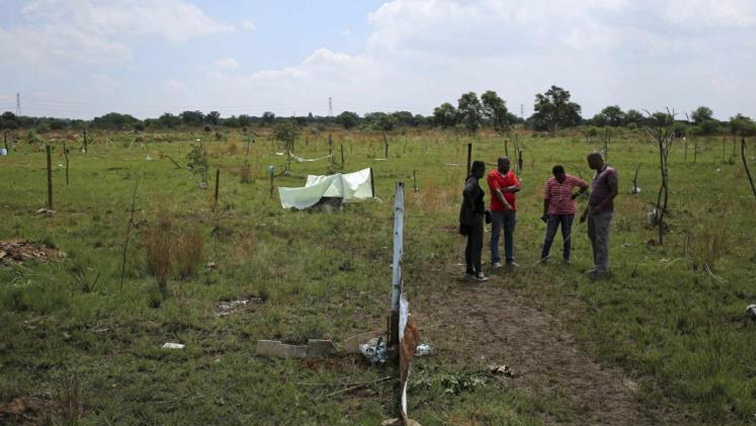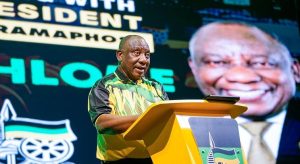Since the African National Congress (ANC) resolved to change the constitution on expropriation of land without compensation at its policy conference in December, government officials from the President down have gone to great lengths to assure the international community that this process would unfold within the confines of the rule of law.
A number of international investor road shows and conferences have been undertaken to some of the major financial capitals of the world over the last 11 months with the question of land and property rights often dominating the discussions there.
“We are now looking at how best this can be done, so South Africa has embarked on a wonderful debate of how to affect land reform, and how to ensure that the majority of South Africans do get access to land. This process has elicited up to 650 000 proposals that have been put forward to a parliamentary committee, and that parliamentary committee is involved in dealing with this matter right and wonderful proposals are coming forward, wonderful in the sense that a number of cooperates that own land are saying we are prepared to contribute land to this process so that there can be land tenure for the majority of South Africans who’ve never really owned land,” says President Cyril Ramaphosa speaking to investors in New York in September this year.
International Monetary Fund (IMF) Managing Director Christine Lagarde was asked to weigh in on the matter during the annual meetings of the fund in Washington in April this year.
“I would simply say that we have mentioned times over the respect for the rule of law, and I would suspect that South Africa being a very civilised, sophisticated country when it comes to the law, the rule of law will also be binding on all and I would just maybe use a proverb, I have no idea whether it’s an African proverb or not, but my recollection is it goes something like ‘trust grows at the speed of a coconut tree and falls at the speed of a coconuts,” says Lagarde.
The Reserve Bank Governor Lesetja Kganyago also jumped in, unprompted, after her response.
“The government had made it very clear that if there was any expropriation it would take place within the constitution, and what has also become very clear, the constitution does provide for expropriation of land by the way without compensation, provided that a particular test is met and that test has been set out by our court. SA is a constitutional democracy and everything that takes place in SA, takes place according to the constitution. We have got institutions that protect our democracy and South Africans over the years have learned how to utilise those institutions to enforce their rights but also more importantly to protect their own democracy,” says Kganyago.
“I would argue that we have at the moment stabilisation measures, we’re dealing with correcting policy mishaps that we’ve had, encouraging debate on sensitive questions and issues like land expropriation and mining sector etc but also ensuring that we begin to have a more constructive dialogue across sectors of the economy,” says Mcebisi Jonas of the Presidents Investment Envoys and former deputy Finance Minister speaking in New York in September.
In March, in the Big Apple during an investor roadshow, deputy Finance Minister Mondli Gungubele said, “It has become an invariable question in every meeting where we have gone and we understand. But all that we are saying to investors, the worst could have been in a situation where we ignore any emotive issue like land. This thing moves from 1913 and we adopted a constitution and that constitution ensures that there is a clause that deals with it because it’s a fundamental issue for either keeping our country together or keeping it apart.”
Investment envoy and Standard Bank’s deputy Chairman Jacko Maree speaking on the sidelines of the SA Tomorrow Investment Conference in New York earlier this November said, “Most of the people who are talking clearly understand South Africa, they have some involvement with South Africa, we are very fortunate – there are many foreign companies that have South African subsidiaries, it’s one of the legacies of our past which we must benefit, and so they have some understanding of the issues and of course if you invest in Brazil or in India or China, you also have uncertainty you can’t have everything being absolutely crystal clear.”
“With us as a business delegation, we’re actually supportive of the fact that even though it’s clear in our constitution, especially under Chapter 25 that speaks about property rights – and it talks about three things – restitution, redistribution and expropriation. But chapter 25 says where the conditions of fair and equitable has been satisfied, that compensation can be down to zero. So technically, we don’t need to even do anything around land, this demonstrates a policy failure on a government that was captured for the last ten years. This President is now saying it rightfully belongs in the Constitutional Review Committee where it’s going to be done orderly in a constitutionally sound manner. We also know what not to do – this is not going to be a Zimbabwe land grab or Venezuelan land grab,” says Business Leadership South Africa’s CEO Bonang Mohale.
Watch related videos below:






